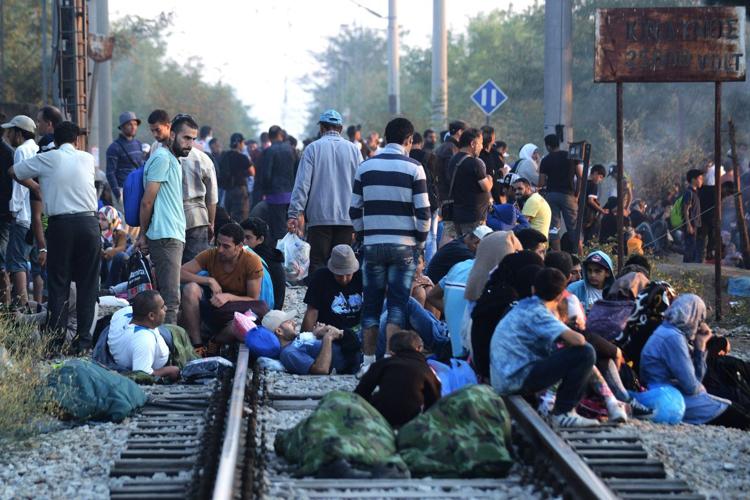Only in the last year has the resettlement agency Refugee Focus needed to find homes for Syrian refugees in Tucson.
That’s because the process to get to the United States from a refugee camp in Turkey or Jordan is a lengthy one, said Craig Thoresen, the Phoenix-based division director for Refugee Focus, a resettlement agency with offices in Phoenix and Tucson.
Although the United Nations High Commissioner for Refugees registers more than 4 million refugees from Syria, the United States has only resettled about 1,500 from that country since its crisis began in 2011, according to the International Rescue Committee, which has a Tucson office.
Refugee Focus, a division of Lutheran Social Services of the Southwest, estimates that the number of new refugees making their homes in Tucson will increase — but not explode — in the coming year to about 100 to 180. But at this point, it has no way of making concrete predictions.
A report from the Arizona Refugee Resettlement Program noted 22 Syrian arrivals in federal fiscal year 2014 and 77 in federal fiscal year 2015 as of Aug. 27.
“Refugee resettlement does not happen quickly, unless there is a collective, political will to make it happen,” Thoreson said.
This week, the International Rescue Committee repeated its earlier call on the United States to increase the number of Syrian refugees the country plans to accept from up to 8,000 to 65,000 by the end of 2016.
“If the U.S. State Department decides to increase the number, they would look to resettlement organizations to resettle more people,” said Connie Phillips, the president and CEO of Lutheran Social Services of the Southwest.
Otherwise, the desperate masses flooding Europe don’t directly influence the day-to-day business of the three resettlement agencies in Tucson — Refugee Focus, the International Rescue Committee or Catholic Community Services of Southern Arizona.
Each year, 800 to 900 refugees settle in Tucson with the help of those organizations, according to Lutheran Social Services of the Southwest.
Those who step off a plane and into Tucson’s dry heat for the first time have been screened and have papers.
They have official refugee status from the UN’s refugee agency and have successfully applied for relocation. The process includes a thorough vetting — background checks, interviews and medical exams.
“They are very careful in the security screening,” Thoresen said. “That’s something that concerns a lot of people.”
The process can take years, leaving refugees to languish in camps.
“A lot of people in Europe came from the same camps where we are processing, but those camps are overcrowded, and there are desperate situations and long waiting times,” Thoresen said.
So instead, some flee to Europe, and if that doesn’t work, they can opt to return to camp and go through processing.
The ones that make it to Tucson usually have a set time period to find a job and get on their feet. The resettlement agency provides a furnished apartment and other necessities upon arrival.
“The burden (on the resettlement agencies) would be that we would need to have more case managers and more relationships with community support groups that help us furnish apartments and are willing to open their hearts and support families as they’re getting started,” Phillips said, referring to how an influx of quickly processed refugees would impact local agencies.
In recent years, Refugee Focus has seen significant Iraqi, Somali and Congolese populations come to the state. Although only small numbers of Syrians are arriving now, that number could increase as more individuals and families are processed.
“This is more than a European crisis,” Thoresen said. “This is worldwide. We haven’t seen this large a number of refugees for a long time.”





